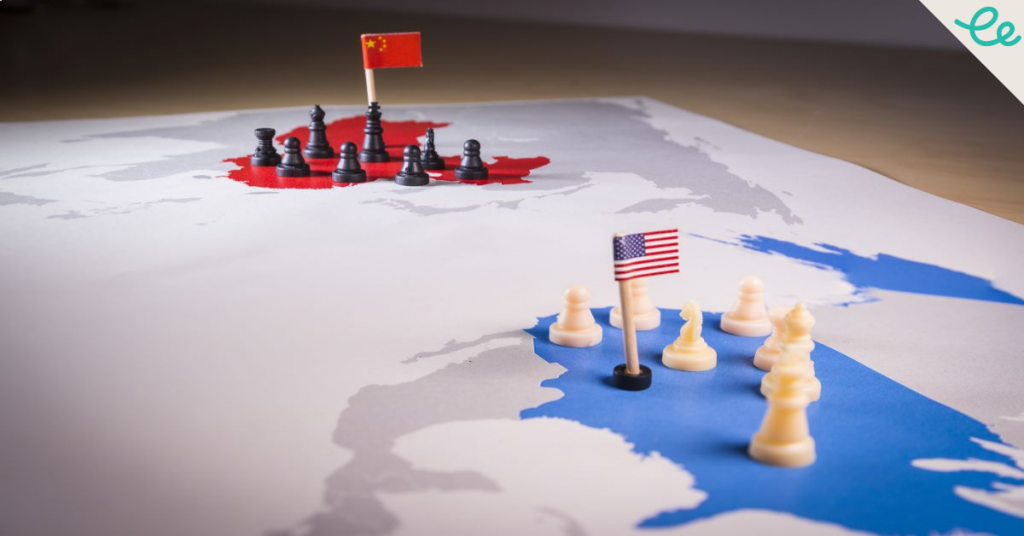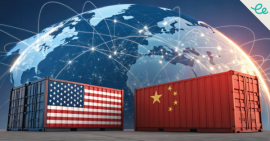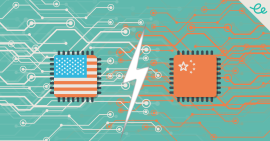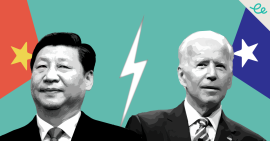Talks and tensions continued to define China US relations. Vice President Mike Pence spoke of a new “Cold War” and Chinese “aggression” at sea. Henry Paulson, long a champion of US engagement with China, said it’s failing and an economic “iron curtain” may soon fall between them. This article is a summary of major US China news in November 2018.
President Donald Trump flew to Brazil for the G20 – and a supper with Xi Jinping that stole the spotlight. “I think we’re very close to doing something with China but I don’t know that I want to do it,” teased the US President, claiming that the US enjoyed billions of dollars in Chinese tariffs.
US Trade Rep. Lighthizer examined all available tools to raise tariffs on Chinese vehicles to the 40% Beijing charges on US-produced vehicles. The US planned to tighten export controls against China – citing national security threats in its request for public comment identifying emerging technologies with dual civilian and military applications. One of Trump’s advisers suggested China could be “evicted” from the WTO.
Some of the most ardent US supporters of engagement with China accused Beijing of trying to influence American politics and society and undermine democratic values. Their report called for “constructive vigilance”, while the Trump administration considered new background checks and other restrictions on Chinese students in the US, underlining widespread concern about Chinese spying and IP theft.
China allowed a US aircraft carrier into Hong Kong as a goodwill gesture ahead of the crunch bilateral meeting between Trump and Xi on December 1 in Buenos Aires. The previous US-China encounter offered little hope of reaching a trade deal: Xi and Mike Pence traded barbs at APEC in PNG. China engaged in “tantrum diplomacy” there – “pushy, insecure, out of control” – yet Beijing blamed the US for the summit’s failure.
China delivered a written response to US demands for wide-ranging trade reforms, including possible concessions, but the US still planned to raise tariffs on Chinese goods in January, as the two Presidents will likely at best agree to a “framework” for further talks on the trade war, said Commerce Secretary Wilbur Ross.
A commission of security and economic experts convened by Congress warned that China’s tech prowess threatens US national security. American executives who once pushed for engagement have also become sceptics and follow Trump in agitating for confrontation. One prominent VC expected the US to lose its technological edge over China in the next five years thanks to Beijing’s support.
In Singapore, Xi’s envoy Wang Qishan told a forum that China is willing to engage with Washington amid their escalating trade war, but he warned that the country wouldn’t again be bullied and oppressed by foreign powers. The World Internet Conference in east China reaffirmed Beijing’s vision of (tight) internet governance. Tesla, Amazon, Microsoft and Qualcomm were the only four foreign firms to receive special mention in Wuzhen, a sign Beijing still favours them despite the US-China war.
Washington is unnerved by China’s “military-civil fusion” on AI, a party demand that new technologies developed by the private sector must be shared with the military. The US charged ten Chinese spies with hacking into aviation firms to steal trade secrets, and Attorney General Jeff Sessions ordered the FBI and the Justice Department to step up enforcement actions against Chinese companies.








Comments are closed.